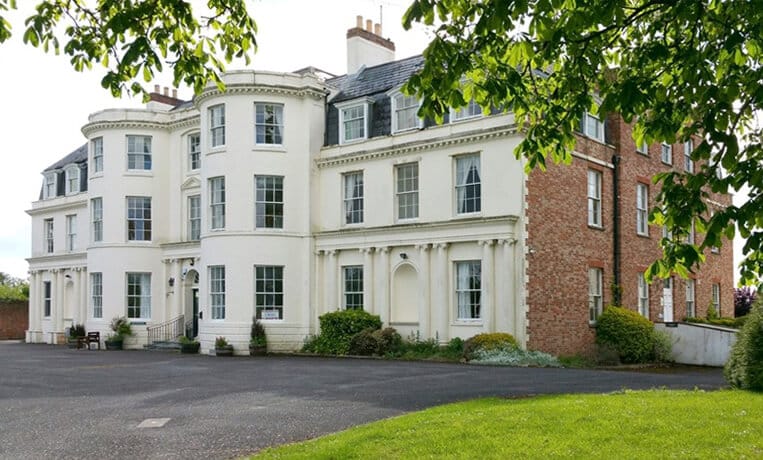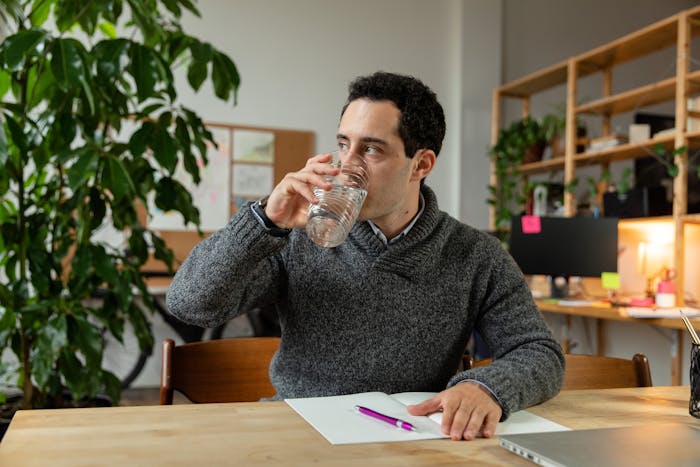There were 1,360 people admitted to hospital due to alcohol in 2018/19 in Southwark.
Clearly, this is a problem that needs addressing.
Thankfully, Southwark already plays host to a collection of excellent rehab facilities.
When you contact Rehab 4 Addiction on 0800 140 4690, we work with you to figure out a rehab plan that’s right for both your budget and your preferences.

If you love someone who has an addiction, not knowing what to do to help them can be extremely demoralising.
The truth is that, when one family member suffers from addiction, the entire family is affected by this disease.
Substances don’t just impact the user.
A lack of knowledge can mean that people don’t understand how to set boundaries, codependent relationships might develop.
Some family members become so emotionally worn out they turn their back on their loved ones.
This is why interventions can be so powerful: it can support a family even while a person’s addiction is severe.
Typically, an intervention is where you contact a professional who accompanies you to a meeting with your loved one.
They’ll lead the discussion to raise concerns and future options.

One intervention method which has proven to be superbly effective is the CRAFT approach.
Here you learn about how to communicate with your loved one in relation to where they are.
You use positive reinforcement to encourage healthy behaviours and movement towards a drug and alcohol rehab in Southwark.
This is also an approach that helps you to take care of your own needs as a carer.

Even where it might seem obvious to an outsider, an addicted person might vehemently deny having a problem with substances.
If you’re coming around to the realisation that you have an addiction, this is a powerful moment.
Answering any of these questions with a “yes” indicates that it’s likely you do and would benefit from treatment services:
If you have answered “yes” to any of these questions and are feeling a bit lost, contact Rehab 4 Addiction for a chat.

Rehab clinics differ greatly between one and the next.
What this means is that there are a lot of options for treatment, ranging from budget to luxury.
A one-week stay at a drug and alcohol rehab in Southwark and its environs can be anywhere from £1000-£10,000.
This covers:

There is limited funding available from the government to help those suffering from addiction to stay at private clinics.
A lot of hoops need to be jumped through in order to be eligible and competition for the funding is high.
To be eligible, you must be in regular contact with alcohol and drug services.
There must be evidence of how dedicated you are to quit substances.
With this in-hand, you can apply to the local council for the funding, at which point you’ll go up against many other people who are also applying for the funding.
This lengthy application process and the uncertainty of its outcome is why many people opt for a private rehab instead.

Some people enter rehab and stay for a week.
This might occur where a person needs to detox from heroin or alcohol as their health is in grave danger.
Others might stay at rehab for 6 weeks because their addiction demands additional support.
The most common length of stay at rehab, though, is 28 days.
This offers the ideal amount of time to undergo a necessary detox and then to immerse in treatments and develop new habits.

For those who have an alcohol problem, they’ll enter a drug and alcohol rehab in Southwark and immediately begin a detox.
This lasts for around 10 days.
The goal of this is to support you to become sober in a safe way.
Medications are prescribed to aid with this, most often a course of Librium.
This stage of your stay is closely monitored by a doctor.
The withdrawal from alcohol can be dangerous due to how it changes the functioning of bodily systems.

Symptoms include:
After detox, you’ll then begin therapies and holistic activities that equip you to face cravings more effectively.
You’ll be guided to understand where the addiction came from and what’s needed from you to overcome this in the long-term.
Group sessions will offer a safe environment of learning, connection, and sharing.
Hearing from others how they’re coping and techniques they use will also empower you to continue with your own recovery.

Many people become addicted to cannabis without realising that it can have a serious impact on their mental and physical health, as well as their lives in general.
THC, the active chemical within cannabis that directly influences the brain.
THC strains of cannabis are illegal in the UK.
The effects of long-term cannabis use include:

Therapists guide you to pinpoint the unhelpful thoughts that lead you to use cannabis.
You’ll also start to analyse your previous lifestyle to understand how cannabis has impacted it.
You’ll start to take part in calming and relaxing activities that support you to feel relaxed.
Emphasis will also be placed on developing new life meaning in other areas.

Entering rehab for cocaine is extremely important to overcoming addiction.
Cocaine has serious effects from how it leaves toxins in your organs.
These build up and can lead to problems with your heart and lungs, all the vital organs, and increases risks of serious diseases.
As well as this, mental health is seriously impacted.
People who use cocaine commonly experience depression, anxiety and suicidal thoughts.
Rehab workers will support you to learn how the chemical processes change the way you think and how this creates compulsive behaviours.
Along with this, you’ll also learn new ways of thinking and how to take back control of those unhelpful thoughts.
Plans will be made which outline how your life outside of rehab needs to change in order to facilitate a sustainable recovery.

If you have a heroin addiction, you’ll have to first be treated for a physical dependency on entering rehab.
This is the detox phase, which is clinically overseen to ensure your safety.
It lasts around 7-10 days.
Symptoms of heroin withdrawal include:
Medications such as Subutex are prescribed in order to ease these symptoms.

After detox, you’ll start with psychological therapies.
It’s likely you’ll also have a worker who specialises in understanding trauma and emotional responses.
Learning healthy ways to react when you’re feeling distressed is important.
Group work will also offer you a space to converse with others in your situation or to communicate through artful endeavours.

At a private clinic, you’ll have access to a wide range of psychological and holistic therapies as well as group sessions.
All of these offer important insights on addiction, your strategy to overcome it, and how to make recovery long-lasting.
Treatments include:

When you enter a drug and alcohol rehab in Southwark, you’ll have an assessment.
It might reveal that as well as having an addiction, you also have a mental health problem.
Where the two conditions are present, this is known as a dual diagnosis.
This is quite common is because, if a person has an addiction, there is such a direct impact on brain chemistry and mental health.
Also, when a person has a mental health condition such as anxiety, depression, PTSD, bipolar disorder or schizophrenia, they might turn to drugs and alcohol to try and ease symptoms.
If a person does this often enough, addiction can develop.

A dual diagnosis at rehab means that staff will address both issues.
Treatments will be adapted to allow for both.
This is really beneficial as through tackling both areas, you have a higher chance of long-term recovery.

At rehab, you’ll start to work on a relapse prevention plan with the staff.
This is part of your aftercare plan and it’s really important you speak openly and honestly to develop it.
Here, your triggers and cravings will be planned for in order to reduce the risk of relapse and also to support you should relapse occur.
The relapse prevention plan will outline what to do in these challenging moments.

It will include techniques that involve thoughts and behaviours.
There will also be clear directions on actions you can take to make sure you remain sober –for example, asking a trustworthy friend to spend time with you or going to a 12 Step Group.
The plan will also outline various lifestyle changes to aim for.
A list of helpful organisations will also be included to support your life of sobriety.

When you leave the drug and alcohol rehab in Southwark, there are other organisations you can contact if you’d like ongoing support around addiction and recovery.

For more information about going to rehab in Southwark, contact Rehab 4 Addiction today on 0800 140 4690.
We shall advise you on selecting a treatment programme that is suited to your needs.
We carry out an initial telephone assessment to help us determine these needs before any specific treatment recommendations are made to you.
Together we can beat addiction for good.
 Addiction is often largely misunderstood, with many incorrectly labelling it as a lack of willpower, a moral failing or something that happens after a series of bad choices. When, actually, addiction is much more complex. It can be shaped by a number of things, such as trauma, mental health, the environment you grew up in […] .... Read More
Addiction is often largely misunderstood, with many incorrectly labelling it as a lack of willpower, a moral failing or something that happens after a series of bad choices. When, actually, addiction is much more complex. It can be shaped by a number of things, such as trauma, mental health, the environment you grew up in […] .... Read More
 After completing or trying your best for Dry January, it can be tempting to count the days left until you can give it all up and return to drinking. But there are multiple benefits to maintaining your abstinence into February and longer. During Dry January, your liver begins to repair itself, say if you were […] .... Read More
After completing or trying your best for Dry January, it can be tempting to count the days left until you can give it all up and return to drinking. But there are multiple benefits to maintaining your abstinence into February and longer. During Dry January, your liver begins to repair itself, say if you were […] .... Read More